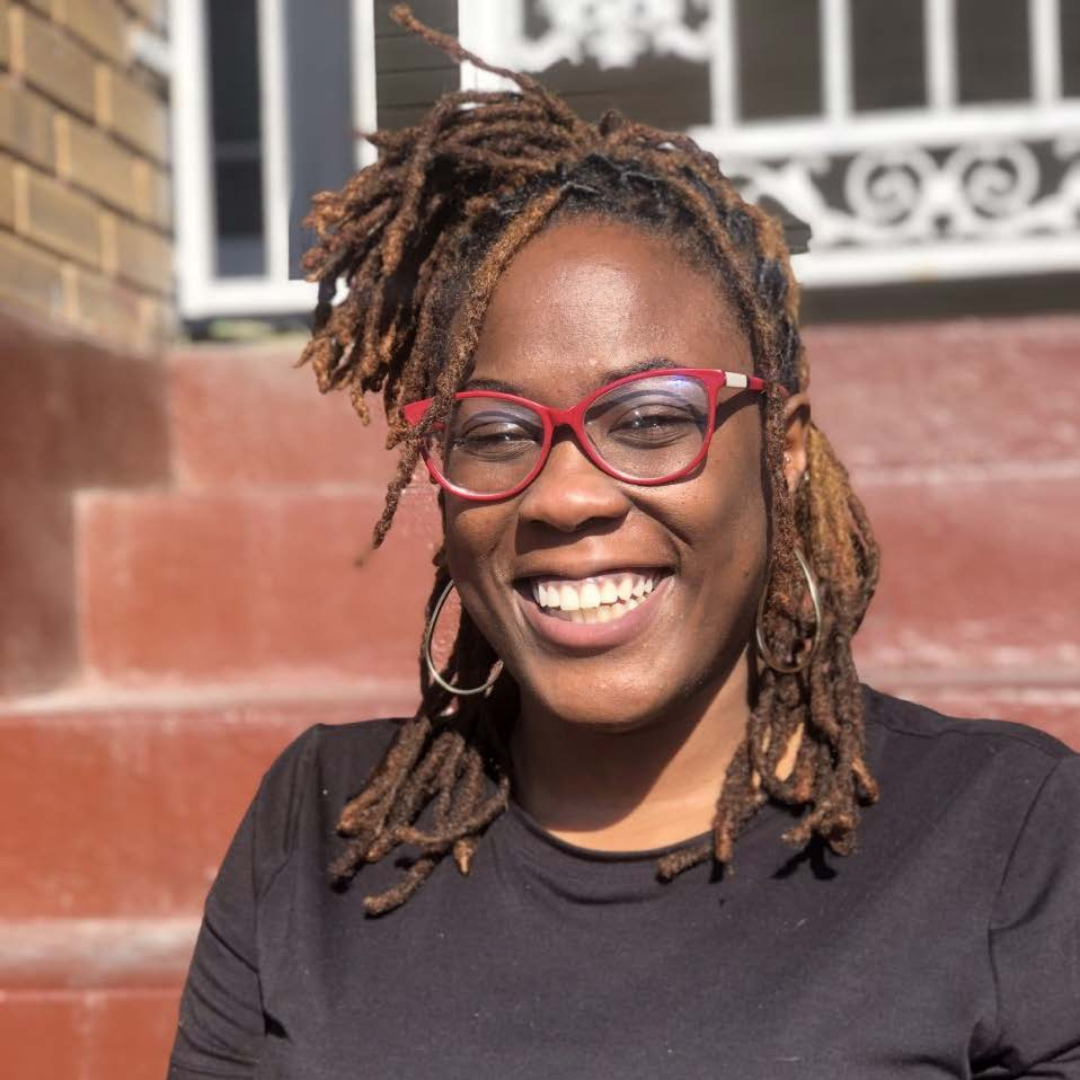Profile: Kaylen Sanchez
Not only are TSSW students learning about empowering individuals, families, groups, and communities, they are doing it! We couldn't be more grateful for their commitment and what they share with us and one another. Meet Kaylen Sanchez (she/her) of the 7th ward, New Orleans, who graduated from Tulane's Accelerated (16 Month) On-Campus MSW with a Certificate in Disaster Resilience Leadership in 2021.
After graduating with a Bachelor of Arts in English and Secondary Education from Xavier University in 2016, Sanchez worked as a teacher for several years before deciding that she wanted to have a larger impact. But what impact would that be? Sanchez couldn't decide on a specific field of social work, which is why she chose Tulane's holistic program.
"My internship is with the New Orleans VA medical center in the polytrauma unit, so my focus is medical social work. I’m hoping to get a focus area in Disaster and Collective Trauma to help me with future community organizing work. The Putting Policy in its Place fellowship is also exposing me to macro social work," Sanchez said. "I think it’s safe to say I don’t have a main focus; rather, a bunch of interests that I hope to mesh together at some point to best serve my community."
Tulane is proud to have students like Sanchez who embody #DoWorkThatMatters. We're also proud to have faculty who care deeply about their subjects and their students.
"[The best part of my time at TSSW has been] the policy fellowship and my Human Behavior and the Social Environment II class with Dr. Buttell. He really does a great job at synthesizing all of the information we have learned so far and making it applicable to practice. He also gives us a lot of autonomy over our education, and that is something I really appreciate."
Full-Time vs. Part-Time MSW: Which is Right for You?
Choosing between an Accelerated 16-month Master of Social Work (MSW) program and a Part-Time 2.5-year option requires careful consideration of your personal and professional commitments. The accelerated program offers a condensed timeframe, allowing you to complete your degree swiftly and enter the workforce sooner. It demands intensive dedication and a focused schedule, making it ideal for individuals like Sanchez seeking a rapid career transition.
The part-time option accommodates students who juggle work, family, or other responsibilities. It offers a more relaxed pace, enabling students to maintain their current commitments while pursuing their education.
Both pathways equip you with the essential skills and knowledge to #DoWorkThatMatters. Choose the format that best aligns with your goals and lifestyle, ensuring a rewarding educational experience tailored to your needs.
How can a Focus Area Help Your Career?
Unlocking the full potential of your degree often means venturing beyond the traditional curriculum. That's where focus areas come in. These specialized concentrations allow students to tailor their education to their interests and career goals without the burden of extra credits. By adding a focus area to your MSW, you gain a competitive edge in the job market by showcasing expertise in either Disaster and Collective Trauma or Mental Health, Addiction, and the Family.
There are many jobs open to students with a focus area in Disaster and Collective Trauma, such as:
- Emergency Management Specialist: These professionals coordinate disaster response and recovery efforts, utilizing their expertise in disaster and collective trauma to assess risks, develop mitigation plans, and manage resources during crises.
- Trauma Counselor: Specializing in collective trauma, these counselors provide crucial support to individuals and communities affected by disasters, offering therapy, counseling, and coping strategies to help them navigate the emotional aftermath.
- Crisis Communication Manager: With a focus area in disaster and collective trauma, professionals in this role effectively communicate vital information before, during, and after emergencies, ensuring clarity, accuracy, and empathy in disseminating messages to affected populations and stakeholders.
- Disaster Relief Coordinator: These coordinators oversee relief efforts and logistics, leveraging their understanding of disaster and collective trauma to organize and deploy resources efficiently, collaborate with aid organizations, and provide support to impacted communities.
- Research Analyst in Disaster Resilience: These analysts study the impacts of disasters and collective trauma on communities, conducting research to identify trends, develop strategies for resilience, and inform policy decisions aimed at reducing vulnerability and enhancing recovery efforts.
- Humanitarian Aid Worker: With expertise in disaster and collective trauma, humanitarian aid workers provide lifesaving assistance to populations affected by disasters and conflicts, delivering food, shelter, medical care, and psychosocial support in crisis zones around the world.
- Community Organizer for Disaster Preparedness: Focused on disaster and collective trauma, community organizers engage with local residents, businesses, and organizations to develop and implement preparedness plans, build resilience, and foster community cohesion in the face of potential disasters.

